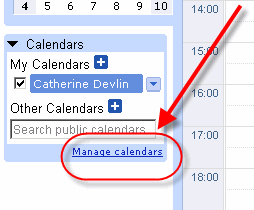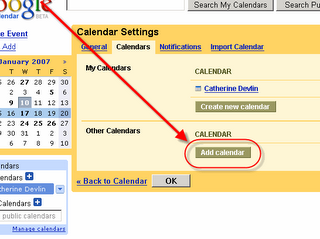 CodeMash
CodeMashBruce Eckel will be in charge of Open Space this time, which means it should be something else. Come with ideas for what you want to do with Open Space.
I promise not to make a habit of posting about xkcd

=============
Bruce Eckel: "Why I Love Python"
=============
Bruce Eckel has given hundreds of presentations throughout the world, published over 150 articles in numerous magazines, was a founding member of the ANSI/ISO C++ committee and speaks regularly at conferences. He provides public and private seminars & design consulting in OO Design, Python, Java and C++.
============
Leah Culver: "Getting Started with Django"
============
Leah Culver founded Pownce with her friends Kevin Rose and Daniel Burka as a way of sending messages, links, files and events to each other. Leah is the lead developer for the site, which has become one of the largest sites using the Django framework. Leah loves the challenge of developing a web application from scratch and writes about her experiences as a software developer at leahculver.com.
============
Kevin Dangoor: "Overview of the Dojo JavaScript Toolkit"
============
Kevin is the product manager at SitePen and the founder of the TurboGears open source web application framework. He has held positions in software development, management and sales engineering. He has previously spoken at CodeMash, PyCon, EuroPython and GLSEC and is the co-author of the book "Rapid Web Applications with TurboGears".

sudo apt-get install libc6-devIn file included from /usr/lib/gcc/i486-linux-gnu/4.1.2/include/syslimits.h:7,... when you try to install cx_Oracle.
from /usr/lib/gcc/i486-linux-gnu/4.1.2/include/limits.h:11,
from /usr/include/python2.5/Python.h:18,
from cx_Oracle.c:6:
/usr/lib/gcc/i486-linux-gnu/4.1.2/include/limits.h:122:61: error: limits.h: No such file or directory
In file included from cx_Oracle.c:6:
/usr/include/python2.5/Python.h:32:19: error: stdio.h: No such file or directory
export ORACLE_HOME=/usr/lib/oracle/xe/app/oracle/product/10.2.0/server/
export LD_LIBRARY_PATH=$ORACLE_HOME/lib
export PATH=$ORACLE_HOME/bin:$PATHerror: cannot locate an Oracle software installationor
ImportError:libclntsh.so.10.1:cannot open shared object file: No such file or directory
sudo python setup.py installerror in cx_Oracle setup command: Oracle home does not refer to an 8i, 9i, 10g or 11g installationbecause setup.py doesn't account for XE. You need to hack it.
patch setup.py useXE.diffsudo python setup.py installsudo su - oracle
export ORACLE_HOME=/usr/lib/oracle/xe/app/oracle/product/10.2.0/server/
export LD_LIBRARY_PATH=$ORACLE_HOME/lib
export PATH=$ORACLE_HOME/bin:$PATH
lsnrctl startexitI mistakenly deleted the following comment:
I installed via easy_install, but there was a bit of a trick. After setting the environment variables I installed using the following command:
sudo -E easy_install cx_oracle The "-E" option to sudo causes all your environment variables to be passed to easy_install

easy_install xcblfrom xcbl.widgets import ExtensibleCheckBoxListpets = ExtensibleCheckBoxList(options=['cats','dogs','turtles'])
CREATE TABLE "!!!My Rockin' Table!!!"
( "*^@(@ @!!!" VARCHAR2(30)
CONSTRAINT " -- d00d --" PRIMARY KEY,
"miXiNG CASE is TEH KEWList" VARCHAR2(30) );
/*
Renames tables and columns to be Oracle-legal.
SET LINESIZE 200 before running to avoid unwanted page breaks.
Run from an account with privileges to
- access v$reserved words
- alter the appropriate tables
Thanks to Eddie Awad for his description of v$reserved words:
http://awads.net/wp/2007/01/10/what-does-reserved-y-really-mean/
Catherine Devlin, catherinedevlin.blogspot.com, 11 May 2007, v0.1
*/
CREATE OR REPLACE PROCEDURE cleanse_names IS
new_obj_name VARCHAR2(30);
CURSOR tbl_names IS
SELECT owner,
table_name
FROM all_tables
WHERE dropped = 'NO';
CURSOR col_names IS
SELECT owner,
table_name,
column_name
FROM all_tab_columns
JOIN all_tables USING (table_name, owner)
WHERE dropped = 'NO';
PROCEDURE do(this IN VARCHAR2) IS
BEGIN
DBMS_OUTPUT.PUT_LINE(this || ';');
-- Uncomment if you're feeling decisive
-- EXECUTE IMMEDIATE(this);
END do;
FUNCTION legalize(name IN VARCHAR2, replacement_letter IN VARCHAR2)
RETURN varchar2
IS
new_name VARCHAR2(30);
is_reserved NUMBER(11,0);
BEGIN
-- must begin with a letter
new_name := REGEXP_REPLACE(name,'^[^[:alpha:]]',replacement_letter);
-- and contain only letters, numbers, #,_,$
new_name := REGEXP_REPLACE(new_name,'[^[:alnum:]#_$]','_');
-- and mixing case is evil
new_name := UPPER(new_name);
-- and we must respect Oracle reserved words
SELECT count(*)
INTO is_reserved
FROM v$reserved_words
WHERE keyword=new_name
AND (reserved='Y' OR res_semi='Y');
IF is_reserved > 0
THEN
new_name := SUBSTR(new_name, 1, 29) || '_';
END IF;
RETURN new_name;
END legalize;
BEGIN
DBMS_OUTPUT.PUT_LINE('set scan off');
FOR col IN col_names
LOOP
new_obj_name := legalize(col.column_name, 'C');
IF new_obj_name != col.column_name
THEN
do('ALTER TABLE ' || col.owner ||
'."' || col.table_name ||
'" RENAME COLUMN "' || col.column_name ||
'" TO ' || new_obj_name);
END IF;
END LOOP;
FOR tbl IN tbl_names
LOOP
new_obj_name := legalize(tbl.table_name, 'T');
IF new_obj_name != tbl.table_name
THEN
do('ALTER TABLE ' || tbl.owner ||
'."' || tbl.table_name ||
'" RENAME TO ' || new_obj_name);
END IF;
END LOOP;
END cleanse_names;Note how we still periodically hear the phrase "serious literature". This is literature that is supposedly about Real Life. Let me tell you something. The most serious literature I've ever read is by Lois McMaster Bujold. Any of you read her? It's also the funniest literature I've ever read. It's also space opera. "Genre fiction," sneers the Modernist. Meaning it follows certain conventions. So what? Nobody in the world can mix gravity and levity the way Bujold does in her Vorkosigan books. It's oh so definitely about real life. So what if it follows space opera conventions. Sonnets follow certain conventions too, but I don't see them getting sneered at much these days. Certainly they were always called "serious".Yes, I'm a Lois fan, too. I once drove hundreds of miles to an SF con purely because she would be there...
How long till Bujold becomes required reading in high school? Far too long, in my opinion. Horrors. We wouldn't want our students actually enjoying what they read. It's not--it's not Real Life.
As if the Lord of the Flies is real life. Feh.
This is my new blogchalk:That's for machines to read. Humans, avert your eyes.
United States, Ohio, Dayton, Brookville, English, German, Catherine, Female, 31-35, Python, environment. :)
SQLError: (NotSupportedError) Variable_TypeByValue(): unhandled dataerrors unless you include
type unicode
sqlalchemy.convert_unicode = Truein your .cfg files.
SQL> insert into city values ('International Falls','MN');
insert into city values ('International Falls','MN')
*
ERROR at line 1:
ORA-02291: integrity constraint (MYSCHEMA.FK_CITY_STATE) violated - parent key not found
mydb=# insert into city values (2,'International Falls','MN');
ERROR: insert or update on table "city" violates foreign key constraint "fk_city_state"
DETAIL: Key (state)=(MN) is not present in table "state".

"c:\Program Files\Microsoft Office\Office11\excel.exe" http://myserver/report"c:\Program Files\OpenOffice.org 2.2\program\scalc.exe" http://myserver/reportIntroduction to Python, April 20 7:30 - 8:30 PM, Catherine DevlinI also hope to make it to
Django the Python framework for rapid web app development, April 21 9:30 - 10:30 AM, Dan Scott
Patterns of Data Access implemented in SQLAlchemy, April 21 6:00 - 7:00 PM, Mark Ramm
PostgreSQL & Explaining Explain, April 20 10:00 - 11:00 PM, Aaron Thuland to sit on the Constructed Languages panel (I'm an Esperantist)... and not to sleep, apparently.
This hCalendar event brought to you by the hCalendar Creator.
Someone brought the following post to my attention and I thought I'd follow up and see if I can be of any assistance... The problem that you are experiencing (500 error: Cannot access the calendar you requested) is due to the large size of (number of events in) the calendar.Wow! Thanks to whoever passed my whining on to him... let me never speak ill of this social web stuff!
Yay! Be in West Chester, OH (i.e., Northern Cincinnati, basically) on March 24 for a fun, free day of Code Camp. Most of the content is .NET, but they're very gracious about encouraging other content, too.The following topics you submitted have been selected to be included in this year’s Code Camp:
· Data in Python, from ASCII to ZODB







